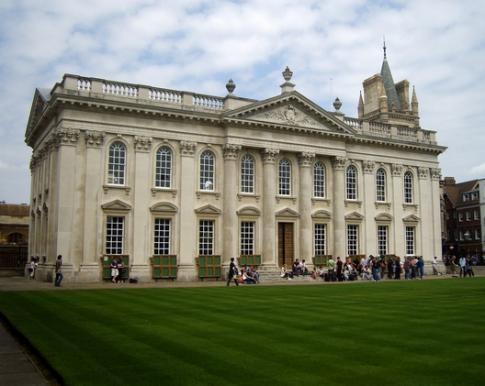UK enters global online university race

The UK's project, called FutureLearn, will see UK universities entering the global market in so-called Moocs - massive open online courses.
By Sean Coughlan
The UK's biggest online university project is being launched, with more than 20 universities offering free courses.
Students will be able to follow courses on mobile phones as well as computers.
The UK's project, called FutureLearn, will see UK universities entering the global market in so-called Moocs - massive open online courses.
It could "revolutionise conventional models of formal education", says universities minister David Willetts.
The launch of FutureLearn will see 21 UK universities, plus Trinity College Dublin and Monash University in Australia, offering courses that are taught and assessed on the internet.
The UK universities include Birmingham, Sheffield, Leeds, Nottingham, Warwick, Bristol, Reading and Southampton.
The British Library, British Museum and British Council will make material available to students.
There are expected to be 20 short courses announced, with eight starting this year.
In this experimental phase, students taking these courses will carry out multiple choice questions, without any formal qualifications.
Although students will not get a certificate, universities are hoping that many people will be attracted by the chance to follow university-level courses without any travel or cost and at a time that suits them.
When the University of Edinburgh offered Moocs through a US network it had more than 300,000 students signing up. The University of London international programme had more than 200,000 registrations.
FutureLearn will see the UK taking a much bigger step into the rapidly expanding online university market - with claims that higher education is now facing its own online revolution.
Universities will also be hoping that it will be a way of raising the visibility of their courses and academics and will attract students to their campus courses.
Reading University is going to offer a Mooc course about basic computer programming.
"Offering free taster courses online is a no-brainer," says David Bell, the university's vice-chancellor.
"Universities shouldn't be afraid to open up teaching and research, either in the UK or beyond. Learning never stops and as the economy's demand for higher skills rises, universities should be in the vanguard when it comes to providing new opportunities.
"Making courses accessible online, on mobiles and tablets means that people can fit their studying around their lives, rather than their lives around study."
FutureLearn's chief executive Simon Nelson says it will offer a "fresh approach" with all its courses designed to work across all kinds of online platforms, so that a student could begin a course on a laptop at home and then continue on a mobile phone while commuting.
He also promises a less isolated experience for students learning at home. He says that it can be a "solitary experience", but that FutureLearn will try to create a supportive online community, with "very strong social architecture".
This will allow students to discuss their courses and ask questions.
This consortium will also draw upon the experience in distance learning of the Open University.
"Time and again we have seen the disruptive impact the internet can have on industries - driving innovation and enhancing the customer experience. I have no doubt Moocs will do the same for education," says Martin Bean, the Open University's vice-chancellor.
There were also suggestions from the Department for Education last week that Moocs could be used for vocational courses for students in further education colleges and sixth forms in England.
Global race
Moocs have already had a major impact in the US, launching last year and spearheaded by alliances of top institutions, including Harvard, MIT and Stanford.
Coursera, set up by Stanford academics in California and backed by venture capital, has signed up more than four million students in its first 18 months for courses provided by more than 80 universities.
These projects have revealed a high level of demand for courses, but also exposed the difficulty in retaining students, with very high levels of drop-out rates.
It has sparked a debate about the cost of higher education and what students are paying for when so much information and so many high-quality university materials are available online.
These US online courses have begun to develop ways of giving students formal credits, such as students paying to take invigilated exams.
Among the Mooc pioneers has been the Massachusetts Institute of Technology (MIT), which set up the edX online platform with Harvard.
On Tuesday, MIT announced a series of new online courses which will have an identity verification system using webcams and with plans for certification for courses.
But there have also been questions asked about the long-term financial viability of online university courses.
Last week, William Dutton, professor of internet studies at the University of Oxford, challenged whether many universities could afford to invest in the type of free online courses offered by wealthy institutions such as Harvard and MIT.
He suggested that online courses might work better as part of a "blended" course, where students spend some time together in the classroom as well as studying online.
Sir Michael Barber, chief education adviser to Pearson and former Downing Street adviser, said that online universities represented an overdue technological advance.
"The models of higher education that marched triumphantly across the globe in the second half of the 20th Century require radical and urgent transformation. My fear is that the nature of change is incremental and the pace of change too slow.
"The establishment of FutureLearn represents an important step in realising this change and seizing the opportunities technology offers in creating a broader, deeper and more exciting education system."
Universities and Science Minister David Willetts said: "I encourage all our institutions to explore the opportunities offered by new modes of technology, such as Moocs. This will keep the UK ahead in the global race to deliver education in worldwide markets."




 del.icio.us
del.icio.us Digg
Digg

Post your comment